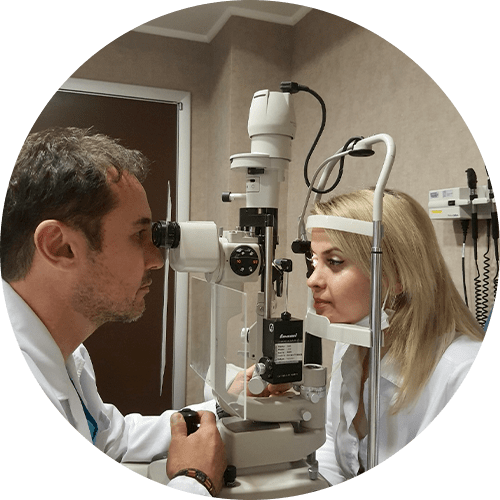GLAUCOMA (EYE PRESSURE)

The silent loss of vision
What is glaucoma?
Glaucoma, also known as the "silent thief of sight", is a chronic eye disease in which the optic nerve is damaged by increased intraocular pressure. This damage usually occurs gradually and often goes unnoticed for a long time. Without treatment, it can lead to visual field impairment, blurred vision, and, in the worst case, blindness.
Why is early diagnosis so important?
Glaucoma is one of the most common causes of irreversible blindness – especially in Western countries. Although it can occur at any age, it primarily affects people over 40. Those at particular risk are those with:
- Family history of glaucoma
- Diabetes mellitus
- Previous eye injuries
- Regular use of steroids
- Migraines
- Or advanced age (60+)
Since the disease often progresses without noticeable symptoms, regular screenings are crucial starting at age 45 – especially for those at risk.
How can you recognize glaucoma?
Possible signs include:
- Increasing visual impairment
- Eye pain
- Light sensitivity and glare
- Scattered light or halos when looking at light sources
If such symptoms occur, you should consult an ophthalmologist immediately. If glaucoma is detected early, progression can often be effectively prevented.
How is glaucoma treated?
Since nerve cells that have already been damaged do not regenerate, the goal of treatment is to protect the remaining cells and stop the disease. Depending on the type and severity, various methods are used:
- Eye drops to reduce intraocular pressure
- Laser treatments to improve aqueous humor drainage
- Surgical procedures, especially in advanced cases or in infants
Even after surgery, additional medication may still be necessary. Treatment is usually lifelong – as is ongoing ophthalmologic follow-up.
Can vision improve?
Unfortunately, once vision loss due to glaucoma has occurred, it cannot be reversed. The goal is to preserve the remaining visual function. In rare cases, surgery for severely elevated intraocular pressure can lead to noticeable improvement – especially if treated promptly.
Don't leave your vision to chance.
Get yourself checked regularly – and act early.
- MAKE AN APPOINTMENT

